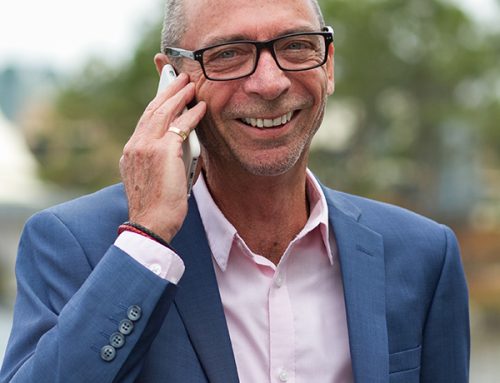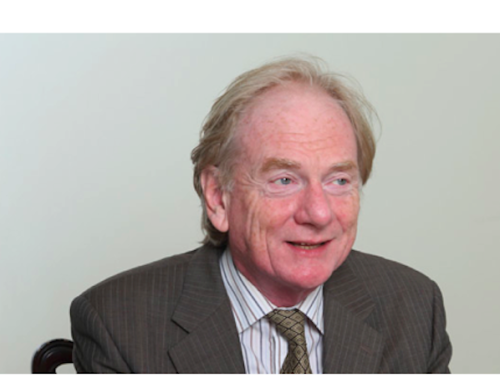In 2014, 350,091 U.S. citizens arrived into Cuba and the numbers are rising. This was the second-largest nationality in terms of visitors after Canada. International arrivals in Cuba have increased a staggering 18% from January to August, compared to last year, just at the time when the US Embassy in Havana has been reopened.
Jet Blue, American Airlines, Sun Country, Swift Air and other American carriers, are already flying into Cuba as charter flights. A bilateral air traffic agreement between the US and Cuba is being worked out as we speak. On the cruise and ferry front, a dozen U.S. cruise and ferry companies are filing for permits to operate into Cuba. Only Balearia, a Spanish ferry company that operates in the Caribbean, is expected to carry 900 passengers per day between Florida and Havana.
In terms of resort ownership, Cuba features the highest ownership concentration of hotels in the world. Cuba’s three largest hotel groups own 82% of the resorts of the entire country. No wonder the largest Latin American hotel group is Cuban.
According to Studies undertaken at Florida International University’s Cuba Research Institute, once diplomatic relations are re-established and the travel restrictions fully lifted, some one million Americans will visit Cuba. And, as we all know, shared ownership is a numbers’ game and in this case the statistics are clear: The U.S. has 67 million citizens with a passport, 10 times more population than Canada (that only generates 1 million visitors to Cuba) and there are 1.5 million Cuban-Americans in the U.S. generating remittances in excess of US$3 billion into the country.
The shared ownership opportunity is obvious but there are a few aspects along the way that need to be considered before evaluating the deployment of vacation ownership operations in Cuba:
Growth in the residential tourism market
What PHG is seeing in Cuba is that the deficit in quality hotel supply is transferring hotel demand across to the residential market. This phenomenon should be good news for vacation ownership operators.
Legislation introduced in 2011 and 2014 allows Cuban homeowners to rent out their private houses to foreign tourists. However this shift is attracting also other accommodation players born in the sharing economy that are disrupting the vacation ownership industry. Since its arrival in Cuba in April, Airbnb features roughly 2,000 houses in this market, ahead of various local Cuban home rental competitors. Airbnb top destinations are Havana (1,260 houses), Trinidad (158 houses) and Cienfuegos (128 houses). But the Cuban National Housing Department has more than 18,740 private residences registered for tourist accommodation rental use across the country. So the potential to play in the vacation ownership segment is huge.
Our latest direct experience on this front is even more striking than this. We are detecting a surge in leisure boat rentals in some marinas in Cuba. Guests are actually asking for boats to cater for overnight accommodation, meaning that boats are being used as a substitute for land accommodation!
No timeshare legislation yet
The larger hotel groups in Cuba have been evaluating timeshare for years but the prevalence of RCI and Interval International in the timeshare ecosystem has not allowed until now any major progress due to the U.S. embargo.
On the real estate front, only now are joint venture companies formed by Cuban groups and foreign companies being allowed to sell leisure real estate products to foreign buyers. British investment fund, London & Regional, is developing a mixed used project in Carbonera that includes a hotel, a golf course and leisure real estate units worth $500 million. At Marina Varadero, a government project that constitutes the most modern marina in Cuba to date, the intention was to sell timeshare but sales have not started yet. Other similar projects are underway.
Right of use
It is key to consider that in Cuba the land belongs to the state so that means that any shared ownership product has to be sold as a right of use or leasehold. Depending on the developments, and what is contemplated in the statutes or the JVs, the rights of use could last indefinitely.
Currency, consumer credit and nationalities
The dual currency system currently in place creates distortions and the government’s intention is to unify the currency. This presents some challenges oreigners are allowed to use credit cards in Cuba. Only now Mastercard and Visa are negotiating their official entry into Cuba as a forms of payment for cards issued in the U.S.
When analyzing the right nationality mix and establishing a sales & marketing strategy for shared ownership, it is obvious that Canadian buyers should be our focus today, followed by U.S. citizens. So American vacation ownership operators should feel at home in this environment.
Foreign resort operations
With few exceptions, a foreign company that wishes to develop (and own) a resort property in Cuba needs to form a joint venture with a local company. The equity and financing will have to be raised by the foreign company that will usually retain 49% of the JV shares. The Cuban partner will put forward the land for the project. As a general rule, the first time a foreign company enters this process it could take several years to come to fruition. The most time consuming phase is the validation of the JV by Cuban authorities and the registration of the land titles for the JV.
The alternative is to enter the market as an operator (1) in developments that are already underway or (2) in newly built projects that can be developed unilaterally by one of the major Cuban hotel groups (namely Gaviota and Gran Caribe).
Sales and marketing teams
Depending on the legal format of the company operating the project, various legal labor scenarios will dictate the way our resort operation will have to be played out. This will also be closely related to the future possibility that the Cuban government would wish to legislate on vacation ownership sales activities. For these reasons and the factors outlined above, most developments to date are focusing on product concepts along the lines of condo-hotels: every unit is sold to a single buyer with variations on its right of use. For now, this simplifies the sales process and allows flexibility in the sales, marketing and operations strategy of the developments.
In summary
So far, the conclusions we can extract from our experience in Cuba indicate that this is a market to consider very seriously:
• The upside in tourism numbers is there. Dominican Republic attracts 5 million tourists per year with half the surface of Cuba.
• The willingness of the U.S. and Cuba to strengthen their commercial and cultural ties has already been demonstrated and historic steps are being taken for this process to progress forward.
• The desire and diligence of Cuban companies in working with foreign operators is something we perceive on a daily basis during the course of our work there. Cuban companies are avid to open up and import new ways of doing business.
• The Cuban government is advancing surprisingly fast in unblocking aspects and processes that facilitate business exchanges. Multitude of jobs have been liberalized to boost the tourism sector (most relevant to us, shops, taxis, bars and restaurants), the real estate and credit market are opening up and Cubans, which are now welcome at local resorts, are increasingly contributing as guests to the bottom line of hotel operations.
With the right strategy and local approach, there is no doubt that vacation ownership products should thrive in the Cuban market.
About the author:Ivar Yuste is a partner with hospitality consulting firm PHG in Spain www.phghr.com. PHG advises hotel owners and operators in the development of resort projects by carrying out feasibility studies, defining the most appropriate product concepts for each market and selecting the ideal operators and investors.
About the author
Its unique position as a Spanish-owned consulting company has allowed PHG to advise hotel groups in opportunities available in selected Cuban destinations. Most recently PHG was appointed by a Cuban joint venture to carry out the first hotel market study ever performed in Cuba.
Ivar Yuste is a partner with hospitality consulting firm PHG in Spain www.phghr.com. PHG advises hotel owners and operators in the development of resort projects by carrying out feasibility studies, defining the most appropriate product concepts for each market and selecting the ideal operators and investors.
Its unique position as a Spanish-owned consulting company has allowed PHG to advise hotel groups in opportunities available in selected Cuban destinations. Most recently PHG was appointed by a Cuban joint venture to carry out the first hotel market study ever performed in Cuba.
Prior to founding PHG in 2009, Ivar Yuste was Managing Director Corporate Development for BlueBay Hotels & Resorts, part of the Marsans group, at the time the largest tourism group in Spain. At BlueBay Ivar lead the expansion of the company into Spain, Morocco, Mexico, Dominican Republic and Cuba and created from scratch its vacation club business unit.
Ivar Yuste joined BlueBay Hotels & Resorts from Wyndham Worldwide’s RCI, where he was Director of Business Development in Europe for the timeshare exchange division.
Ivar holds an MBA from the University of Chicago Booth Business School and is a frequent contributor in hospitality publications regarding Cuba and other Latam resort markets.





